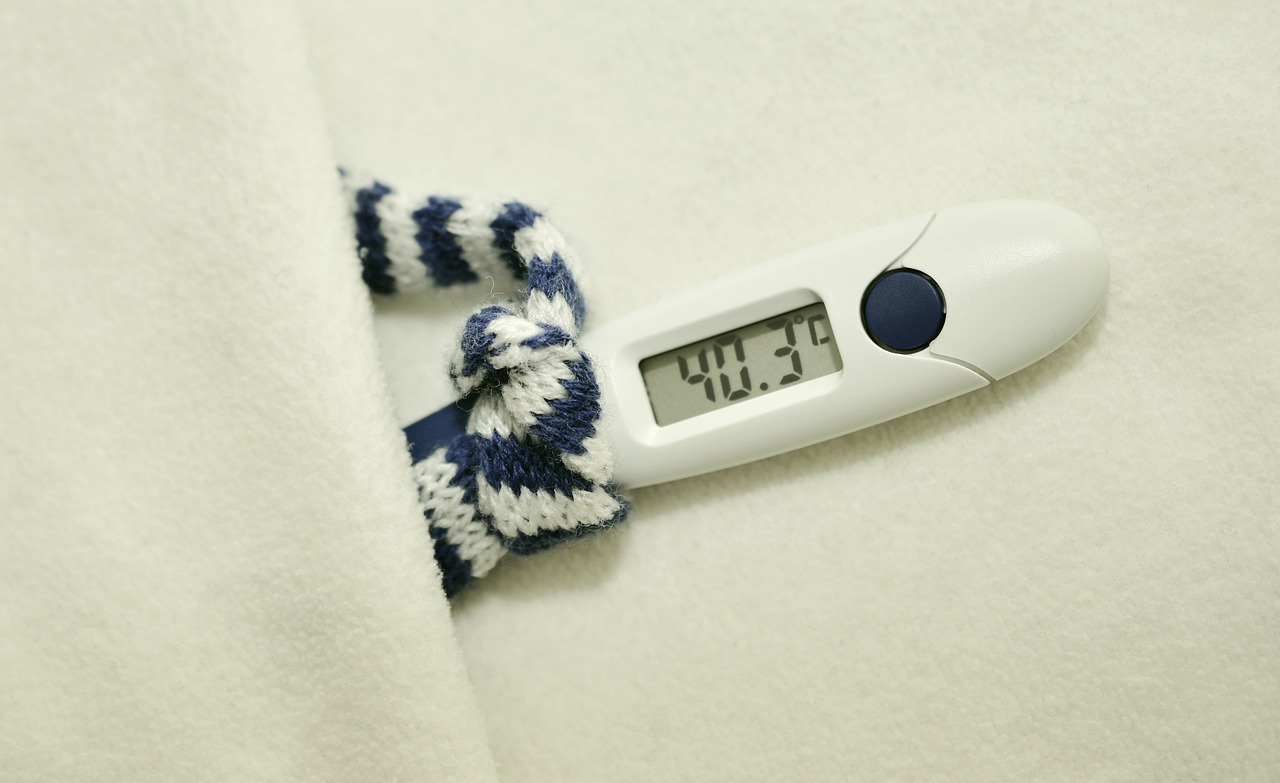The child has a fever: it is important to be alarmed

In a way, fever is a good thing: it means that the baby's immune system does its job by fighting a cold or other infection. The brain controls the rise of body temperature, which in turn directs white blood cells to attack and destroy invading viruses and bacteria. Amazingly, healthy children of all ages can usually tolerate fever of up to 40 degrees Celsius without complications. It is possible that the child's temperature never comes close to these scary grades, but it is good to be ready. Not every fever (especially under 38. 5 degrees celsius) is one that worries you.
But he immediately calls the doctor if the fever reaches 39 degrees Celsius or more and is accompanied by two or more of the following symptoms: a cough, a sore throat, a stuffy nose, headaches, chills, fatigue, and diarrhea. These classic symptoms of influenza (H1N1 or seasonal) occur within 24 hours of fever, and the pediatrician should recommend a medication to reduce the severity and duration of symptoms. Because fever is a signal from the body that something is not good, you should, however, pay special attention to your child's symptoms. If he has a clogged nose and a low grade fever (below 38 degrees celsius), he usually has a common cold, while vomiting and diarrhea probably indicate a stomach virus. In both cases, fever tends to develop gradually and disappear within a few days.
Alarm signals Immediately notify the doctor about the symptoms of the child if he or she complains of sore throat, sore throat or pain while urinating as these conditions could signal an ear infection or a urinary tract infection that could be . It is also good to raise your questions if your baby has symptoms of dehydration, for example if he urinates less than usual, does not produce tears when he or she is crying or apathetic. Although rare, certain symptoms (which are often accompanied by fever) require immediate medical attention. If you have a child experiencing heavy breathing, having waking difficulties or a rash or purple spots (both could indicate meningococcaemia, infection of the bloodstream), it is time to go to the hospital! . Also, call your pediatrician if your baby is less than 2 years old and the fever lasts longer than 24 hours (for older children, you can wait three days before contacting your doctor if you have no symptoms suggestive of seasonal influenza or H1N1).
Body Cooling Anti-thermal drugs are not the only remedies against fever. A tepid bath or a soaked towel can temporarily cool the baby's body. Stay away from cold water and ice baths, however - they will further increase your body temperature. Give the little one as many liquids - water or tea - to help the body fight the disease and keep it hydrated. It is important for the little girl to sit in light clothing, where the skin can breathe.
Source : csid.ro
Views : 3266
Popular Article
- (photo) Nude becomes art.
Posted: 2018-03-17, 9657 views.
- The harmful effects of air conditioning on the skin
Posted: 2017-06-08, 8347 views.
- 3 causes of dyed hair discoloration
Posted: 2017-06-15, 8223 views.
- Why early puberty occurs in girls: symptoms, favors, diagnosis and treatment
Posted: 2017-10-24, 8073 views.
- Good or bad skin treatments in the hot season
Posted: 2017-06-07, 7806 views.
Recommendations
- (photo) Nude becomes art.
Posted: 2018-03-17, 9657 views.
- The harmful effects of air conditioning on the skin
Posted: 2017-06-08, 8347 views.
- 3 causes of dyed hair discoloration
Posted: 2017-06-15, 8223 views.
- Good or bad skin treatments in the hot season
Posted: 2017-06-07, 7806 views.
- Risks of practicing sports on hot days
Posted: 2017-06-12, 7404 views.
 4 effective ingredients in the fight against acne.
4 effective ingredients in the fight against acne. How to get rid of hiccups fast
How to get rid of hiccups fast The wheat bran diet: the secret of lost pounds as if by magic
The wheat bran diet: the secret of lost pounds as if by magic The recipe that will sweeten your soul this weekend!
The recipe that will sweeten your soul this weekend!  Is it dangerous or not to refreeze meat after thawing it?
Is it dangerous or not to refreeze meat after thawing it?  The unusual sign of diabetes indicated by saliva.
The unusual sign of diabetes indicated by saliva. What to drink to boost your immune system.
What to drink to boost your immune system. 10 foods that help you never age.
10 foods that help you never age. What actually happens in your body if you drink a cup of coffee for breakfast
What actually happens in your body if you drink a cup of coffee for breakfast 5 surprising benefits of chia seeds
5 surprising benefits of chia seeds